In the News
-
 16 July 2016
16 July 2016Water War
Residents of Giddijhopri clash with police as they try to stop work on a water treatment plant in their village. Work started on Friday after the CM took note of report that Jamshedphur SDO Suraj Kumar had to face sedition case when he tried to expedite the Bagbera-Chotagovindpur water supply… -
 10 June 2016
10 June 2016Rejecting the World Bank’s false choice between rights & development
In April, World Bank President Jim Yong Kim gave a talk in New York where he addressed development-induced environmental and human rights abuses. While referring to such abuses, President Kim reasoned “[y]ou cannot do the kind of work we are trying to do and not have some of these incidents happen.” Although he framed rights violations as regrettable, President Kim’s implication — that human rights violations and loss of life are sometimes an inevitable part of achieving development — is false. -
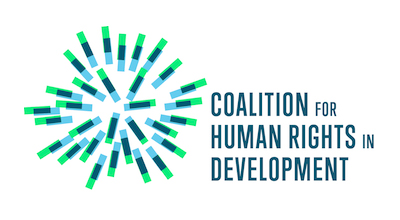 5 May 2016
5 May 2016In Nepal, Fighting for The Rights of Indigenous Peoples
My name is Abhijeet*. I am a community member in Sindhuli, Nepal and I am actively resisting against human and environmental rights violations in the construction of the Khimti-Dhalkebar Transmission Line (KDTL Project). The KDTL Project is a high-voltage transmission line that will cross the area of Sindhuli. It is being funded by the World Bank and implemented by the Nepal Electricity Authority (NEA). -
 20 April 2016
20 April 2016Dysfunction in Development Aid Runs Deep
In a recent exposé, journalists from Reveal at The Center for Investigative Reporting exposed an accountability gap that has allowed the United States Department of Agriculture (USDA) to pour over $130 million of development assistance into projects run by Planet Aid. USDA continues to invest in Planet Aid even after being presented with evidence that their projects are tied to a corrupt and abusive cult. -
 5 April 2016
5 April 2016Powerless: a call for World Bank community engagement in Nepal
In mid-February the government of Nepal declared an energy crisis and began importing electricity from India in the hope of ending the daily power cuts of twelve hours or more in the capital of Kathmandu. In an accompanying policy, the “Electricity development decade”, the government announced ambitious plans to bring over 900 MW of new hydropower online in the next two years and ultimately export excess production to India. -
 24 February 2016
24 February 2016Beyond Buzzwords: Development Banks’ Fail to Remedy Harm Caused by Their Own Projects
Are development finance institutions held accountable when their projects cause harm to communities and ecosystems? While “accountability” has become an oft-used and broadly-defined buzzword in development, much work remains to be done to ensure that institutions are indeed held to account in their everyday operations. According to a recent report by eleven international NGOs, including the Centre for Research on Multinational Corporations (SOMO), Accountability Counsel, Center for International Environmental Law, and Inclusive Development International, the evidence suggests that development finance institutions are failing to provide remedy to those harmed by their projects. -
 10 November 2015
10 November 2015Is the World Bank’s Inspection Panel working the way it should?
When violations of bank policy are not formally investigated by the Inspection Panel, people who have been harmed by bank projects have nothing to point to for “external validation” of wrongdoing, Accountability Counsel Executive Director Natalie Bridgeman Fields told Devex. Further, formal investigations serve a critical role in promoting learning at the World Bank and within the board by establishing a “systemic level of accountability,” Fields said. So why would the Inspection Panel recommend against a formal investigation? -
 28 September 2015
28 September 2015World Bank support for Haitian mining: far from a gold standard
If you ask the average Haitian, they probably do not know of their government’s plan to develop the country’s gold deposits through a formal mining sector. For over two years the government has been advancing a strategy to bring foreign mining companies into Haiti, yet hardly any information has been made public about a decision that will likely have sweeping implications for people throughout the country. -
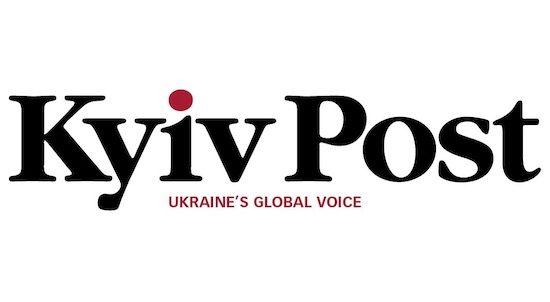 22 September 2015
22 September 2015Environmental organizations raise stink over MHP’s poultry farm
There’s an ill wind blowing in Vinnytsa Oblast, and if one of Ukraine’s biggest agriculture companies keeps growing, things could get worse for the people living nearby, environmental, corporate and bank watchdog organizations from the European Union and Ukraine say. MyronivskyHliboproduct (MHP), which runs the biggest poultry farm in Europe near the village of Ladyzhyn southeast of Vinnytsa, was the subject of two reports released this September after a fact-finding mission of six environmental watchdogs visited the area in May. -
 30 July 2015
30 July 2015Ukraine agribusiness firms in ‘quiet land grab’ with development finance
Hundreds of millions of dollars in development finance from the World Bank’s investment arm have helped to fund the controversial expansion of a billionaire’s agribusiness empire in Ukraine, amid growing concern that land and farming in the country are increasingly falling into the hands of a few wealthy individuals. Controlled by… -
 17 July 2015
17 July 2015World Bank overlooked families in Nepal project, panel finds
The World Bank failed to make sure that families displaced by a high-voltage power transmission line in Nepal were properly counted and compensated, an internal panel at the bank found this week. The revelation marks the latest instance in which the development giant was faulted by its own watchdog for not following its own rules on forced, or “involuntary,” resettlement. -
 24 June 2015
24 June 2015World Bank critics lack of protection, Human Rights Watch charges
…“These recent failures at the Bank present a legitimacy crisis. To restore its credibility, the Bank needs to rethink its approach to accountability and the reforms needed to achieve it,” wrote Natalie Bridgeman Fields, founder and executive director of Accountability Counsel, and Kindra Mohr, Accountability Counsel’s policy director, in the Council on Foreign Relations blog in May… -
 26 May 2015
26 May 2015Using video advocacy to engage vulnerable youth populations
Change makers around the world increasingly use new technologies and communication tools to advocate, engage communities, and drive action—especially among young people. Blogs, social media campaigns, community video screenings, and flash mob demonstrations have exploded in popularity over the past several years, often serving to elevate grassroots voices and spur marginalized groups to action. By understanding and supporting such efforts, funders can capitalize on advocacy’s potential to achieve significant returns on investment. -
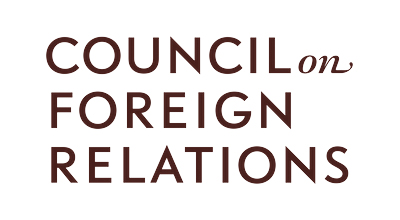 7 May 2015
7 May 2015Rethinking Accountability at the World Bank
The World Bank faces a disconnect between its mission to serve the poor and the effects of its projects, some of which displaced 3.4 million people in the world’s most fragile regions over the past nine years. Last month, World Bank President Jim Yong Kim admitted to known, longstanding problems… -
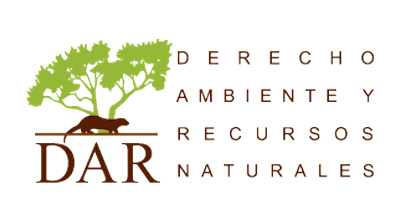 4 May 2015
4 May 2015DAR’s Boletín Features Accountability Counsel’s Mexico Case
This week, Peruvian organization Derecho Ambiente y Recursos Naturales (DAR) published a bulletin featuring Accountability Counsel’s historic case in Oaxaca, Mexico, where communities successfully used a complaint mechanism to secure their right to have a say in development decisions. -
 15 April 2015
15 April 2015How the World Bank is Financing Environmental Destruction
“Putting a high-risk strategy in place in these environments is like throwing matches into a tinderbox,” said Natalie Fields, the executive director of the Accountability Counsel, a legal group that represents native people in disputes with the World Bank and IFC. “They are guaranteed to lead to abuses or even fail.” -
 15 March 2015
15 March 2015Unsustainable development
The question of what kind of development Nepal wants has gained increasing urgency as more and more people risk losing their homes, land, and livelihoods to development projects. Hydropower projects such as Upper Marsyangdi-A in Lamjung, Kabeli-A in Panchthar, and Khimti-Dhalkebar in Sindhuli; the Sunsari-Morang irrigation project; and the proposed Sapta Koshi High Dam are just a few examples. -
 9 March 2015
9 March 2015OPIC is No Model Investor
On a scorching day back in April 2013, among the ruins of a failed U.S.-backed development project, Liberian women gathered to tell their stories of sexual abuse and exploitation at the hands of Buchanan Renewables bosses. The U.S. Overseas Private Investment Corporation (OPIC) approved $217 million in “development” financing for Buchanan Renewables to carry out an energy project in Liberia, which was a spectacular failure and led to the abuses that these women suffered. By failing to take appropriate precautions to protect the vulnerable communities in Liberia and heed warnings of abuse and major project defects, OPIC failed its development mandate and perpetuated livelihood destruction, severe worker injuries, harm to indigenous peoples, water contamination, forest degradation, and human rights abuses. -
 5 March 2015
5 March 2015World Bank Admits It Ignored Its Own Rules Designed to Protect Poor
The World Bank, created to fight poverty, has admitted that it’s failed to follow its own rules for protecting the poor people swept aside by dams, roads and other big projects it bankrolls. This conclusion, announced by the bank on Wednesday, amounts to a reversal of its previous efforts to… -
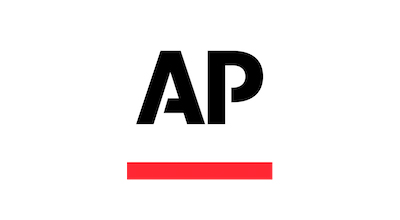 30 January 2015
30 January 2015US-backed Mexico dam project triggered protest, rare defeat
SANTA URSULA, Mexico (AP) — People in the hamlet of Santa Ursula began to worry when the logging started. In a few short weeks, more than a mile of densely forested riverbank was stripped from the Arroyo Sal to make way for heavy dredging equipment. Work was just beginning in late 2010 on an ambitious, three-year, $30 million project to build a 15-megawatt hydroelectric plant directly adjacent to the Cerro de Oro dam, with support from a U.S. government agency in Washington.

